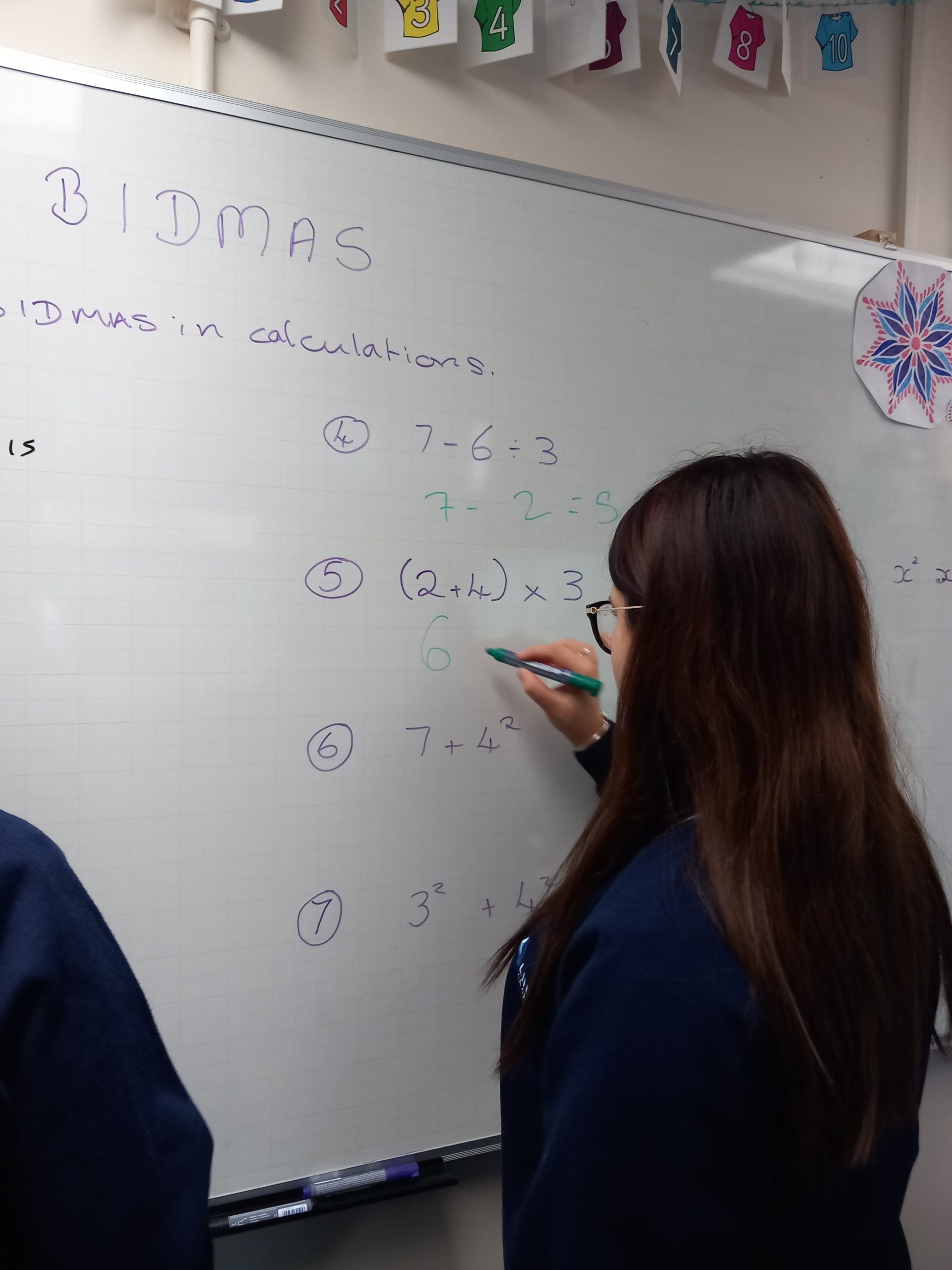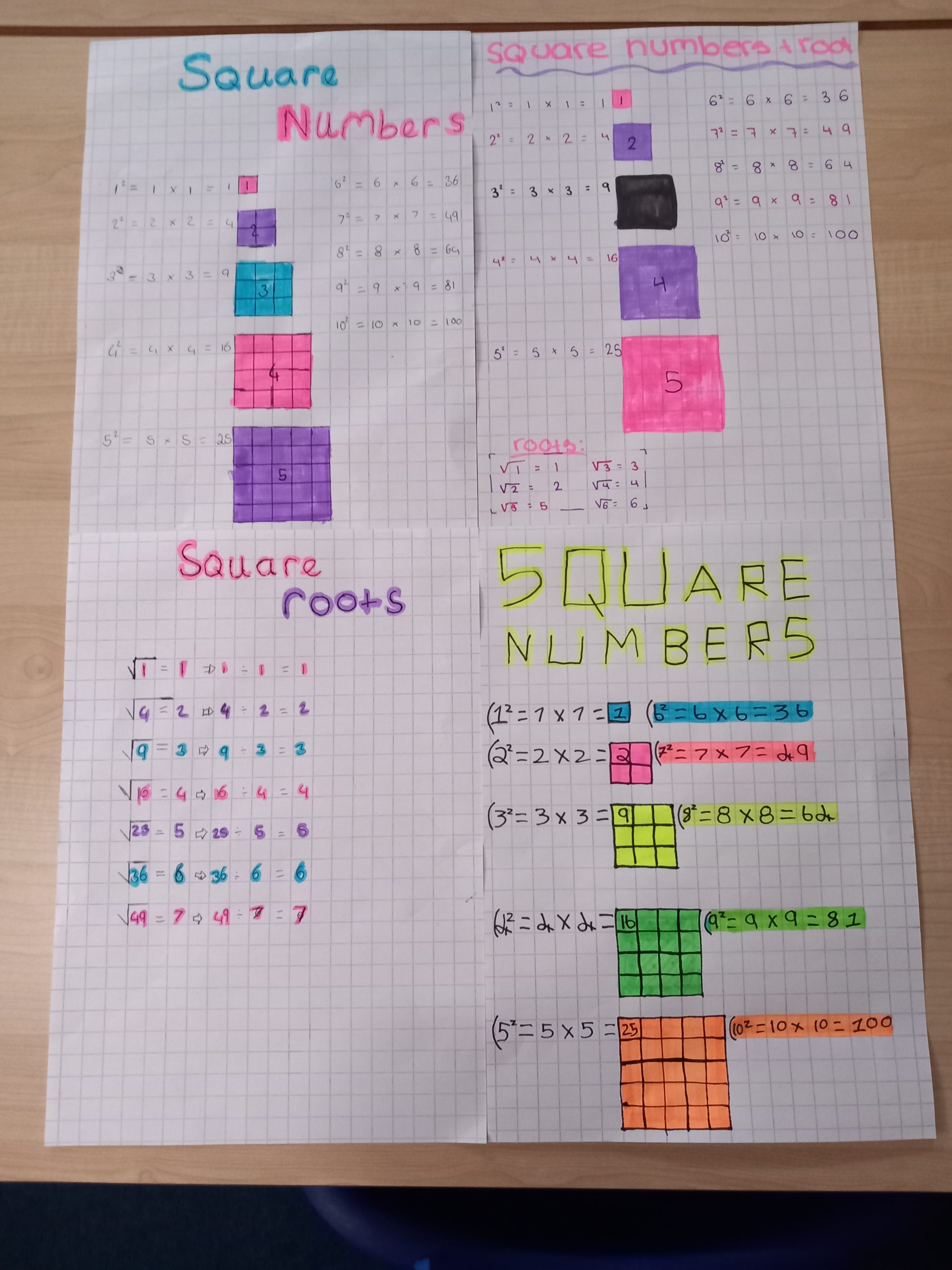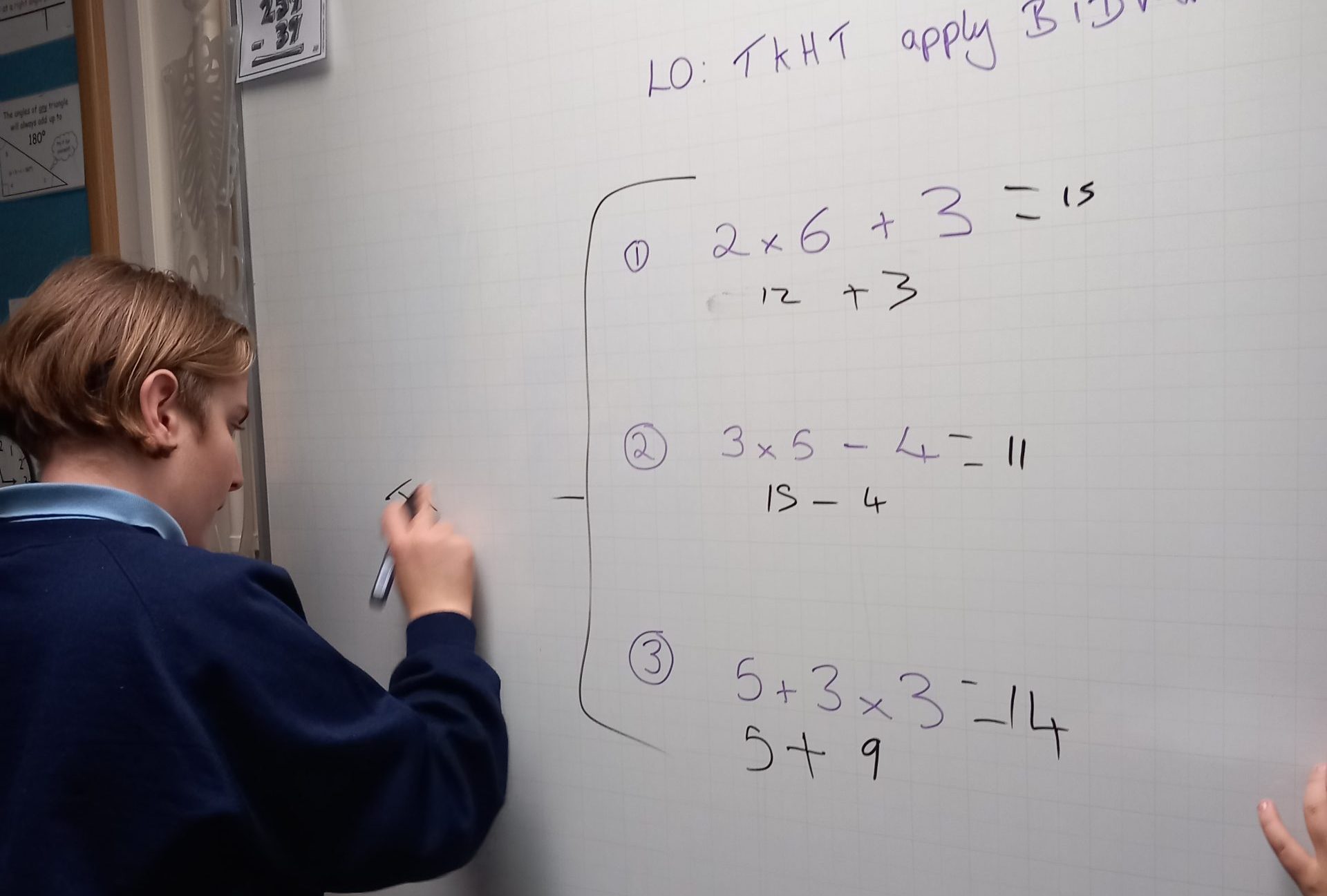At Links Academy, every student’s mathematical journey begins with a baseline assessment during their two-week induction period. This in-depth gap analysis allows us to identify individual strengths and areas for improvement. Students are then placed on a tailored programme of learning designed to meet their specific needs and goals. Our curriculum offers multiple pathways to ensure students can achieve success:
KS3 Pathways:
KS4 Pathways (Progression):
Each pathway incorporates stepping stones to underpin core knowledge and skills, providing a structured approach to progression. Assessments, including induction baselines and ongoing evaluations, guide students’ individualised learning plans.



Welcome to Our KS3 Maths Page!
Mathematics is a core subject, with students attending 4–5 lessons per week. These lessons build a strong foundation in mathematical skills and concepts, preparing students for academic success and real-world applications. The curriculum aligns with the AQA KS3 Framework, structured around five key areas:
Our Teaching Approach
Our maths team is dedicated to supporting and scaffolding each student’s learning journey. By addressing knowledge gaps and building confidence, resilience, and responsibility, we ensure students can access the curriculum at a level that suits their needs.
How We Support Learning:
Assessments for Progression
We use various assessments to monitor and support progress:
Induction Baseline:
A gap analysis identifies each student's strengths and areas for development, shaping personalised lesson plans.
AQA Entry Levels (1, 2, and 3):
Designed to build confidence and address foundational gaps, these qualifications support students with missed learning due to attendance issues or home education.
Functional Skills Level 1:
A practical qualification focusing on real-world maths applications like budgeting and data interpretation.
Tools to Support Learning
To keep students engaged, we provide diverse resources, including:
Encouraging Independent Learning
We empower students to take ownership of their progress by:
Weekly homework is available on request, and students have access to the school’s Google Drive, which features a home learning page.
Recommended Online Resources
With small class sizes and an adaptive teaching approach, we help students take responsibility for their achievements. Our focus on critical thinking and problem-solving prepares them for their next steps, whether continuing with us in KS4 or transitioning to a new educational setting.
Every student can succeed in mathematics, and we are here to ensure they do!
AQA GCSE Maths Topics Include:
Functional Skills Maths:
Practical qualifications focusing on real-world applications such as budgeting, area calculations, and time management. Level 1 is equivalent to a GCSE grade 3, while Level 2 corresponds to a GCSE grade 4/5 and is widely accepted by colleges and apprenticeships.
Why We Do It
Mathematics is a fundamental skill for life, education, and employment. Our approach helps students build confidence and competence in mathematics, preparing them for their next steps, whether in further education, apprenticeships, or careers. By focusing on practical applications and critical thinking, we ensure students leave with skills they can use in everyday life, such as:
How Can Parents/Carers and Students Help?
For Students:
For Parents/Carers:
The Links Academy serves the needs of primary and secondary schools and their students in the St. Albans and Harpenden districts of Hertfordshire.
Travellers Lane
Hatfield
Herts
AL10 8TJ
1 Hixberry Lane
St Albans
Herts
AL4 0TZ
Woollam Crescent
St Albans
Herts
AL3 6EJ
© 2025 Links Academy St Albans | Accessibility Statement | Sitemap | Policies
Built by Twenty-Two